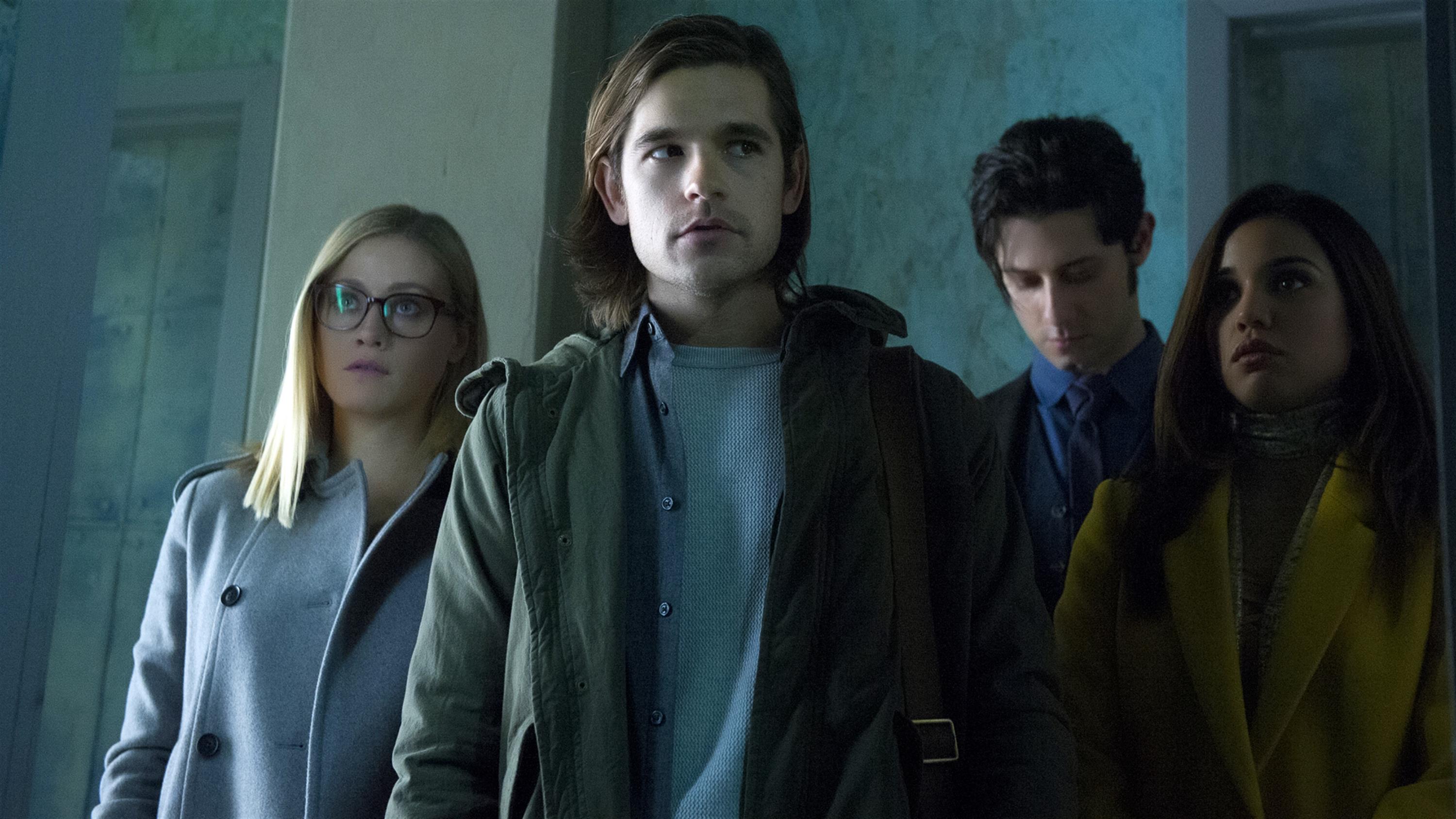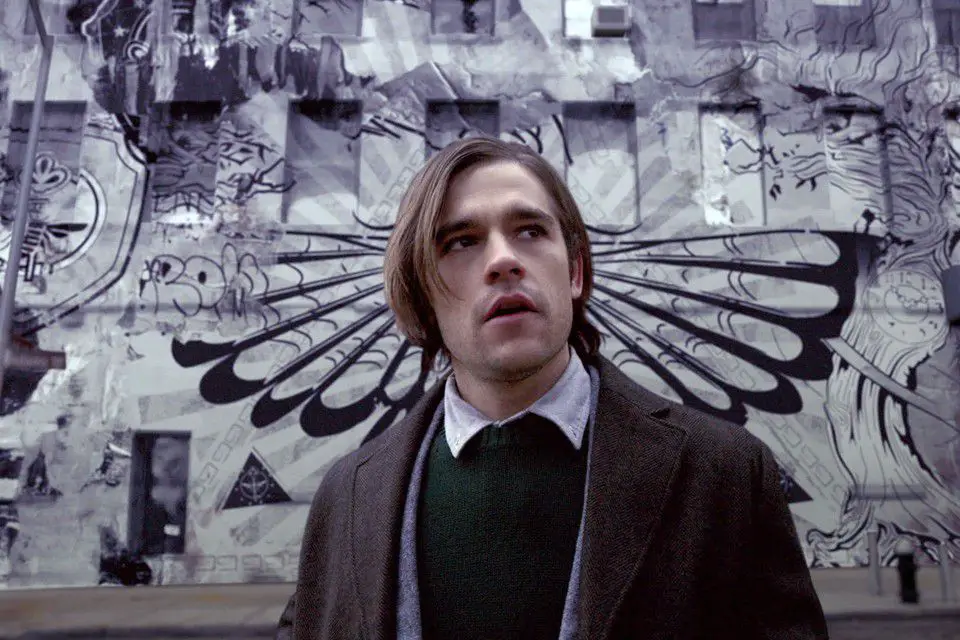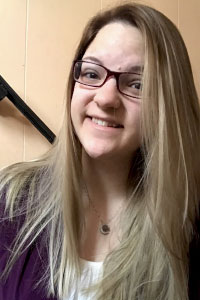Bleary-eyed from my latest session of binge watching, I returned to the Netflix home screen in hopes of finding a new series to dig me out of my “show hole.”
With its simple name and gorgeous icon, Syfy’s “The Magicians” drew me in. While the pilot episode took a rocky start, trying to cram too much information into the 40-minute episode, something about the show caught my attention.
The exploration of protagonist Quentin Coldwater’s acceptance into Brakebills, a magical graduate school, and his subsequent quest for happiness intrigued me not only because I love fantasy, but also because it’s the first fantasy story I’ve come across geared toward college students.

When I finished the show, I was excited to find out , like the true book lover I am, the story originated from the 2010 trilogy by Lev Grossman. Eager to see the similarities between the TV show and its origin, I was surprised to find there are more differences than I expected and even more amazed with my acceptance of the changes.
Typically, screen adaptations of books are scrutinized by book lovers for their accuracy. Maybe I’m biased, since I watched the show before reading the books, but I’m glad the show and the books are almost completely different stories. The adaptation features older characters and takes advantage of timely references and college humor.
Finally, a current show with current jokes stemming from students staying up all night typing papers they don’t care about, surrounded by wrappers of shame and grease stains on their keyboard. You know, if the paper you were typing was for magical theory and the wrappers of shame were crumpled-up failed spells.
For many, the fantasy genre offers an escape from the mundane, as world-building and rule-establishing distract and change what is undesirable about reality. Few fantasy shows, books or movies are targeted at college students, but what better place to need an escape from than the world of impossible tests and research assignments?
The line, “How about, go fuck yourself” from the first episode of season two shouldn’t have made me laugh as much as it did, but that’s the kind of humor the show offers. It’s full of casual swearing, Patrick Swayze impressions and the futility of growing up and accepting your responsibilities, even if those responsibilities include running a different world you thought only existed in fiction and killing a beast or trickster god.
The show captures the accuracy of the most important thing you learn in college: Adults are just pretending to know what they’re doing until they make it.
Behind the comic relief, the show reminds viewers that being a college student comes with a myriad of problems, besides school work and planning for the future. Forty-four percent of college students admit to having symptoms of depression. From the beginning of the show, Quentin exhibits signs of depression, as at one point in the pilot he distances himself from others at a party and mentions that he’s been institutionalized before.
In the fourth episode, “The World in the Walls,” Quentin is trapped in a dream that captures his biggest fear, which is that everything magical he has experienced since arriving at Brakebills has all been made up, and he’s actually been in a mental hospital the whole time. Viewers get an idea of how Quentin’s hospitalization has affected him.
Two episodes later, in “Impractical Applications,” Quentin says, “I’m in this amazing place. I have literal magic in my life, and I’m still running. I’m still this person that I fucking hate.” All along, he has been expecting magic to cure his depression, but even Brakebills becomes a boring routine to him.
His relationships are tested, and his emotions get the best of him. Mental illnesses are typically misrepresented throughout different media, but as the series progresses, “The Magicians” sets the stage to prove otherwise.
One of Quentin’s friends and fellow leaders of Fillory, Eliot Waugh, embodies substance abuse, another problem college students are likely to face. Eighty percent of U.S. college students admit to alcohol abuse.
Eliot always knows what kind of alcohol to drink with what and boasts about his ability to make drinks, but his habits are also dangerous. Toward the end of season one, Eliot is in a relationship with someone who was being used to gain information from Brakebills.
When Eliot is forced to kill or be killed by the one he was romantically interested in, he starts to deteriorate quickly. With a flask always in his hand, he’s constantly drunk and unaware of what’s going on around him, almost getting himself and his friends killed in the Neitherlands.
Julia Wicker, Quentin’s childhood best friend, fails the Brakebills entrance exam, which usually ends in a memory wipe. Julia was able to remember the rejection though, and her life turns into shambles.
She delves deeper into magic and, misguidedly trying to do the right thing, summons a trickster god, who sexually assaults her. The beast that her friends are trying to kill may have a way to destroy the god, who is on a murdering spree.
When the beast offers to take away her “shade,” or what makes her feel, Julia refuses, claiming that she needs it. If she had given into the beast, she would have been unable to feel anything at all. Julia wants to be able to feel what she has been through, so maybe she can find happiness again.
Aside from the fantasy elements, these are real issues college students face. While shows like “Community” and “Blue Mountain State” focus on a comic approach to college, “The Magicians” addresses prominent issues faced on campuses, besides partying and group projects. The relevant humor captures what being a college student is like with the added benefit of magic and fantastic creations. The show is still young, but I look forward to seeing how the ideas and characters grow and what other college problems might be covered.
College is a strange world for those first entering its domain, and some universities do their best to educate students on how to deal with depression or stave off substance abuse. The show provides a creative way of viewing various relatable obstacles. Students can ultimately learn from the characters, while binge watching a fantasy series.















